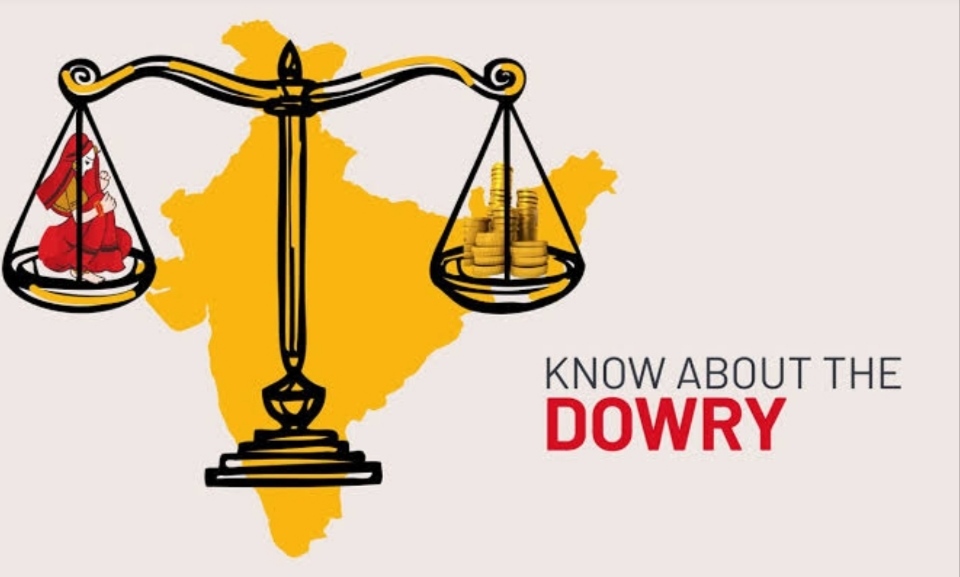Latest News
Dowry

Under Dowry prohibition Act, 1961-86, "Dowry" is defined as any property or valuable security given or agreed to be given, directly or indirectly a) by one party to the marriage to the other party to marriage, or b) by parents of either party to marriage, or by any other person to either party to marriage or to any other person at or before or at any time, after the marriage "in connection with the marriage of said parties". It should be noticed that the Act uses the word "Dowry" not merely in the sense of what bride's parents give to the bride and groom but also the other way round. In other words, if property or valuable security is given by bridegroom to the bride or bride's father in connection with the marriage of parties, it would also be covered in the definition of dowry. In the definition as laid down in the original Act, the words were "as consideration for marriage" which have been substitute with the words " as connection with the marriage." But wedding presents, whatever be their value, are excluded from the purview of dowry. It would have been better to say " whatever does not constitute wedding presents constitutes dowry.".
Taking or giving of dowry or abetting to give Dowry or abetting to take dowry continue to be offences. Similarly, demanding of dowry by any person, directly or indirectly, from parents or guardian of bride or bridegroom is also a dowry offence. Under the original Act, the punishment for these offences was mild, the maximum punishment was six months' imprisonment or a fine which could not be beyond a sum of Rs. 5000; both the punishments could also be awarded. But now the punishment has been enhanced and minimum and maximum punishment have been laid down. The amending Act of 1986 provides a punishment which shall not be less than Rs. 15000 or the amount of the value of such Dowry whichever is more. In awarding smaller punishment, the court is required to record in writing the adequate and special reasons for doing so.
It may be that dowry has actually been received but it's receiver is not the bride, but either the husband or some other person or someone from among the in-laws. In such a case, the Act lays down that dowry has to be transferred to the bride. When any person has received dowry at, before, or after the marriage, he must transfer the same to the bride within three months of receipt. If dowry was received when the bride was a minor, then it must be transferred to her within three months of her attaining majority. Pending such transfer , he would hold the dowry as trustee for the benefit of the bride. The failure to transfer the Dowry to the bride within the stipulated period constitutes a dowry offence, for which the offender is liable to be awarded the same punishment as the taker of dowry.
Neither the original Act nor the Amending Acts have made the dowry offences as cognizable, but, nonetheless, these offences have been made cognizable for the purpose of investigation. The dowry offences are non- compoundable offences. This means once a case goes to court, the parties are not free to compromise. The offences relating to Dowry are non- bailable. An agreement for giving or taking Dowry is void, i.e., it cannot be enforced in a court of law.
It is not accepted that one of the reason for the failure of the Dowry Prohibition Act, 1961, it has been absence of any proper and effective enforcement agency. The committee also noted this fact, and suggested that there should be some machinery which can intervene whenever necessary and help in averting dowry tragidies by helping the Dowry victims, as well as by helping otherwise in the enforcement of the Provisions of Act. It suggested appointment of Dowry prohibition Officers in different areas of each state whose responsibility would be to take appropriate steps for enforcing and preventing the provisions of the Act.



































































































